#Chocoholic: We Sure Love Our Chocolate, But It'd Be A Lot Sweeter If It Wasn't Coming From Child Labor.
#Chocoholic: We sure love our chocolate, but it'd be a lot sweeter if it wasn't coming from child labor.

WATCH the short video here.
+2 million children work in cocoa production in Ghana and the Ivory Coast. This year, Nestlé, Mars Bar, and HERSHEY'S were sued for knowingly partnering with suppliers that use child workers.
DEMAND that these chocolate companies become Made In A Free World here: madeinafreeworld.com/action!
More Posts from Dotmpotter and Others

Not measured by money but by positive influence :) respect.
The World's Commercial Shipping Routes
by Grolltech on Wikipedia:

This map of shipping routes illustrates the present-day density of commercial shipping in the world’s oceans.
Via Reddit and Wikipedia, data from the National Center for Ecological Analysis and Synthesis
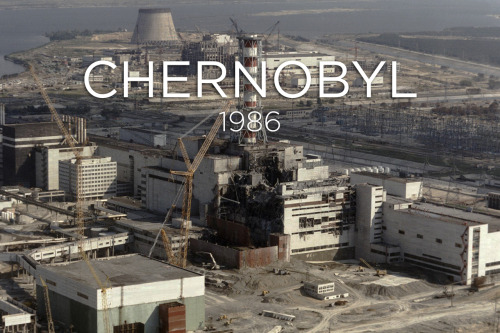
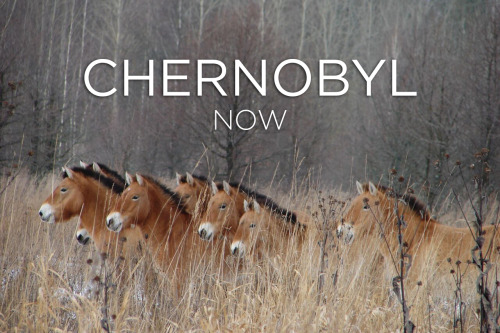
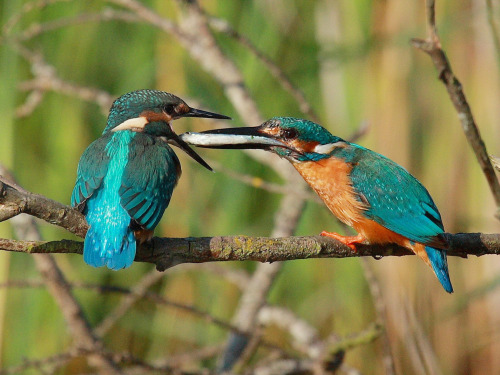
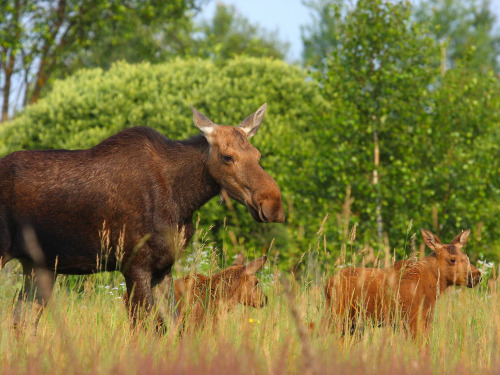
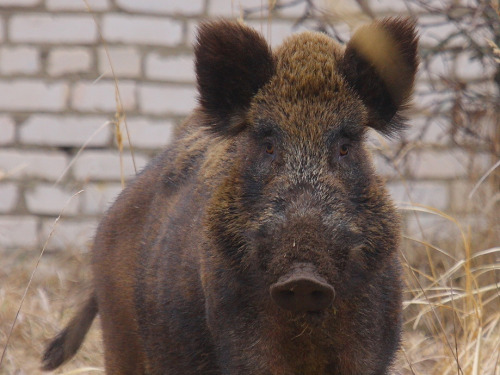
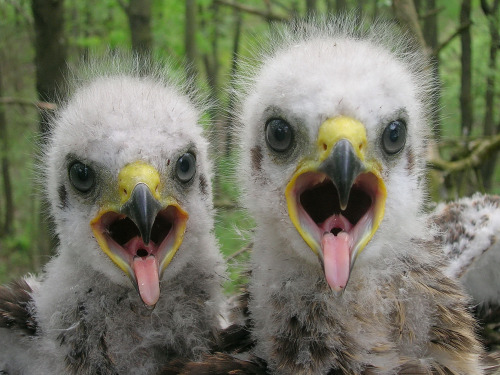
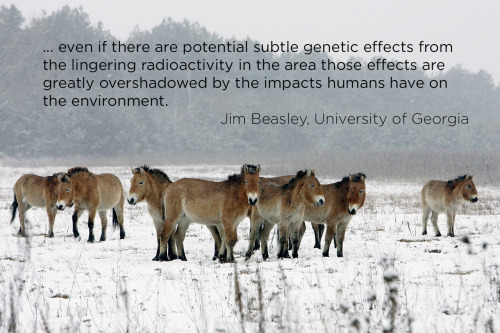
On April 26, 1986, a power surge caused an explosion at the Chernobyl Nuclear Power Plant near Pripyat, Ukraine. A large quantity of radioactive material was released.
On May 2, 1986, the Soviet government established a “Zone of Alienation” or “Exclusion Zone” around Chernobyl – a thousand square miles of “radioactive wasteland.” All humans were evacuated. The town of Pripyat was completely abandoned.
But the animals didn’t leave. And a new study, published this month in Current Biology, suggests they are doing fine. “None of our three hypotheses postulating radiation damage to large mammal populations at Chernobyl were supported by the empirical evidence,” says Jim Beasley, one of the researchers.
In fact, some of the populations have grown. These photos (mostly taken by Valeriy Yurko) come from the Belarusian side of the Exclusion Zone, and area called the Polessye State Radioecological Reserve. Kingfisher, elk, boar, baby spotted eagles, wild ponies, moose, rabbits, and wolves all make their home in the park. In some ways, human presence is worse for wildlife than a nuclear disaster.
Image credits:
1986 Chernobyl - ZUFAROV/AFP/Getty Images
Wildlife photos - Valeriy Yurko/Polessye State Radioecological Reserve
Ponies in winter - SERGEI SUPINSKY/AFP/Getty Images

Picture Quote Of The Day: #life. You are…
View more Nina Dobrev on WhoSay

Now that is pure adaptation!
As the days get darker and colder in much of the northern hemisphere, it’s easy to indulge in gloom. For the next few months, you’ll be shivering. You’ll be battling foul weather. Thanks to daylight saving time there will be no chance to see the sun after work.
The gloom leads to a common question: What can I do to cope with the dark and cold?
If you truly want to be happy during winter, though, this is the wrong approach to the season. Changing your mindset can do more than distracting yourself from the weather.
At first, she was asking “Why aren’t people here more depressed?” and if there were lessons that could be taken elsewhere. But once she was there, “I sort of realized that that was the wrong question to be asking,” she says. When she asked people “Why don’t you have seasonal depression?” the answer was “Why would we?”
It turns out that in northern Norway, “people view winter as something to be enjoyed, not something to be endured,” says Leibowitz, and that makes all the difference.
Lessons From The Far North
To be sure, there are some aspects of the near-polar culture that might be hard to emulate elsewhere. Small Norwegian communities are tightly knit, and strong social ties increase well-being everywhere. That said, there are lessons that can help anyone think differently about cold weather.

Earth Could Lose a Third of Its Topsoil
You might think that dirt doesn’t matter that much — after all there seems to be so much of it all over the planet.
But researchers warn that the world’s precious supply of topsoil — which we need to grow food crops, absorb excess carbon and supply us with new antibiotics — is being lost faster than it can be replenished through natural processes. And the decreasing supply of soil could have a catastrophic effect on agriculture and the world supply of food.
The UN, which designated 2015 as the International Year of Soils, warns that 33 percent of the planet’s soil resources are being degraded due to erosion, pollution, acidification and nutrient depletion — destructive processes that are caused by bad land management. And unless new approaches are adopted, the amount of productive farmland on Earth per person will only amount to one-fourth of the amount available in 1960.
In December, the UN is set to release a report on the state of the world’s soil, and it’s likely to present an even more grim picture, according to a preview in New Scientist. We’re losing soil at the rate of 30 soccer fields per minute, and if we don’t slow the decline, the planet’s entire supply of soil for farming could be gone by 2075.
Anyone who believes exponential growth can go on forever in a finite world is either a madman or an economist.
Kenneth Boulding
700,000-Year-Old Stone Tools Point to Mysterious Human Relative

Someone butchered a rhinoceros in the Philippines hundreds of thousands of years before modern humans arrived—but who?
Stone tools found in the Philippines predate the arrival of modern humans to the islands by roughly 600,000 years—but researchers aren’t sure who made them.
The eye-popping artifacts, unveiled on Wednesday in Nature, were abandoned on a river floodplain on the island of Luzon beside the butchered carcass of a rhinoceros. The ancient toolmakers were clearly angling for a meal. Two of the rhino’s limb bones are smashed in, as if someone was trying to harvest and eat the marrow inside. Cut marks left behind by stone blades crisscross the rhino’s ribs and ankle, a clear sign that someone used tools to strip the carcass of meat.
But the age of the remains makes them especially remarkable: The carved bones are most likely between 631,000 and 777,000 years old, with researchers’ best estimate coming in around 709,000 years old. Read more.
Apple yanks drone-strike-tracking app from App Store

The app, Metadata+, was created by Josh Begley, research editor for The Intercept; Begley changed its name from Drones+ after it was rejected as “objectionable” by Apple five times.
At the time, an Apple employee told Begley that the app would never be approved if it focused on US drone strikes, but would have a chance if he “broadened his topic” because “there are certain concepts that we decide not to move forward with, and this is one.”
Metadata+ never the word “drone” – this may be how it snuck past the Apple censorship board. But seven months later, Apple has unceremoniously yanked it.
Apple: a giant corporation that gets to decide which journalism you’re allowed to access with apps on your device, and whose lawyersrepeatedly told the US government that changing this situation should be a felony punishable by five years in prison and a $500,000 fine.
Ecosystems work great – they just fail miserably. The important part of a benevolent dictatorship isn’t the “benevolent” – it’s the “dictatorship.”
Read the rest
Facebook UK made £105M in 2014, paid £35M in bonuses, and will pay £4,327 in tax

Which is a notable improvement on its tax bill for 2013, which was £0 on earnings of £223m.
The company says it made an accounting loss of £28.5m in the UK for 2014. Facebook says that it “compliant with UK tax law” and adds that its employees usually choose to pay tax on their income rather than availing themselves of the kinds of tax dodges Facebook itself uses. Meanwhile, UK-based companies pay tax, as do their employees, meaning they have less income from which to return dividends to their investors, making UK-based business less profitable and less attractive.
The UK Tory chancellor, George Osborne, has announced swingeing cuts to tax credits for the UK’s working poor, who are at record levels, with many children living in food poverty, because the country allegedly can’t afford to top up the accounts of working people who are literally starving.
George Osborne has repeatedly cut corporate tax rates.
Read the rest
-
 svarte-troner liked this · 1 year ago
svarte-troner liked this · 1 year ago -
 yfaskincare reblogged this · 9 years ago
yfaskincare reblogged this · 9 years ago -
 globalissuesandawareness reblogged this · 9 years ago
globalissuesandawareness reblogged this · 9 years ago -
 eviltessmacher reblogged this · 9 years ago
eviltessmacher reblogged this · 9 years ago -
 mmbfoundation-blog reblogged this · 9 years ago
mmbfoundation-blog reblogged this · 9 years ago -
 thoughtlessarse reblogged this · 9 years ago
thoughtlessarse reblogged this · 9 years ago -
 thoughtlessarse liked this · 9 years ago
thoughtlessarse liked this · 9 years ago -
 businessandsustainability-blog reblogged this · 9 years ago
businessandsustainability-blog reblogged this · 9 years ago -
 dotmpotter reblogged this · 9 years ago
dotmpotter reblogged this · 9 years ago -
 lyn-dotdotdot-blog liked this · 9 years ago
lyn-dotdotdot-blog liked this · 9 years ago -
 lorgeboi liked this · 9 years ago
lorgeboi liked this · 9 years ago -
 lancake liked this · 9 years ago
lancake liked this · 9 years ago -
 daisy-tales3 reblogged this · 9 years ago
daisy-tales3 reblogged this · 9 years ago -
 weird-cool-girl reblogged this · 9 years ago
weird-cool-girl reblogged this · 9 years ago -
 satanismybrothah reblogged this · 9 years ago
satanismybrothah reblogged this · 9 years ago -
 fortfuncat reblogged this · 9 years ago
fortfuncat reblogged this · 9 years ago -
 heybarbie-heyken reblogged this · 9 years ago
heybarbie-heyken reblogged this · 9 years ago -
 lovelythingsinternal reblogged this · 9 years ago
lovelythingsinternal reblogged this · 9 years ago -
 lovelythingsinternal liked this · 9 years ago
lovelythingsinternal liked this · 9 years ago -
 a-ll-blue reblogged this · 9 years ago
a-ll-blue reblogged this · 9 years ago -
 a-ll-blue liked this · 9 years ago
a-ll-blue liked this · 9 years ago -
 mediocrenomore reblogged this · 9 years ago
mediocrenomore reblogged this · 9 years ago -
 double0eleven reblogged this · 9 years ago
double0eleven reblogged this · 9 years ago -
 madeinafreeworld reblogged this · 9 years ago
madeinafreeworld reblogged this · 9 years ago